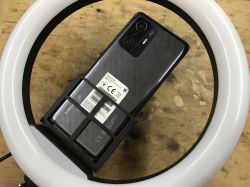Hello,
I have uploaded on GitHub version Evo 3.8.12
Link What's new ?
1. "smooth" mode has been added to the VU indicators,
2. new look for "mode 0 and mode 2",
3. new look for the station list,
4. improved recovery mode response to the encoder,
5. The web page in the configuration now shows the recommended "default" values,
6. station name reading directly from steam - Experimental function,
7. new font for station name display,
8. changed the name of the ESP32 to Evo. The radio reports on the network under the name:
http://evoradio.local/
AD1.
Now cool slowly rising and falling. The option is configurable in the menu. To make it work, you need to run it so that a new config.txt file is overwritten on the card or in SPIFFS memory.
AD2
there is no second hand, the colon in the clock flashes, I have reverted to displaying the full name "FLAC" instead of "FLC".
AD3
The header displays the current bank and separation line. Eventually I will change the stream files so that I don't keep the station number and bank in them.
AD6
you can enable yourself to read the station name directly from the stream for testing. Unfortunately this will incorrectly still generate station lists on the web. Also not all radios generate their name correctly in the stream. More for fun/testing I will probably remove this in future editions.
In the case of providing the radio with a link to the stream via www (there is such an option in the stream editor), the radio will just display the above mentioned name from the stream instead of the
the existing abbreviation on the OLED display: "URL"
AD7
This is a font from the same family, only slightly narrower, so that in future it will be possible to display 1-2 characters more in the station name itself.
Compilation as usual under Arduino and Platformio. Source file and bins on GitHub. Enjoy testing.

.

.

.







